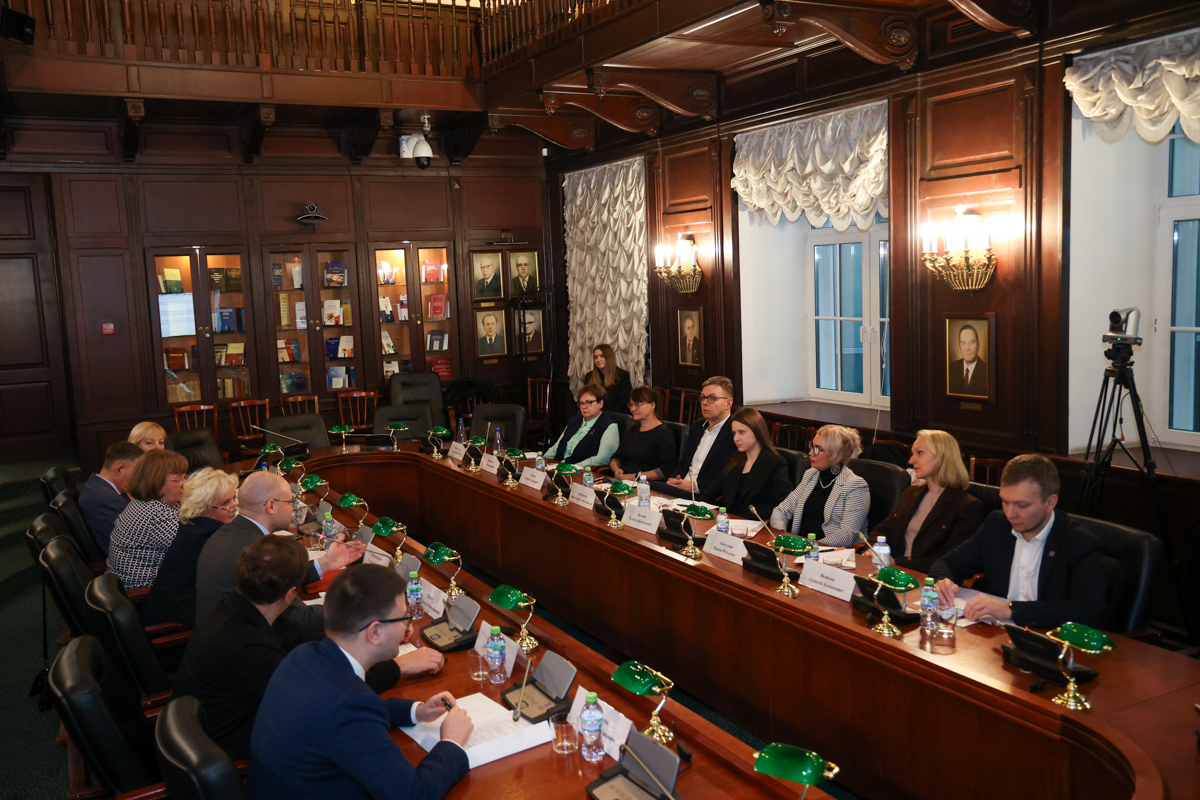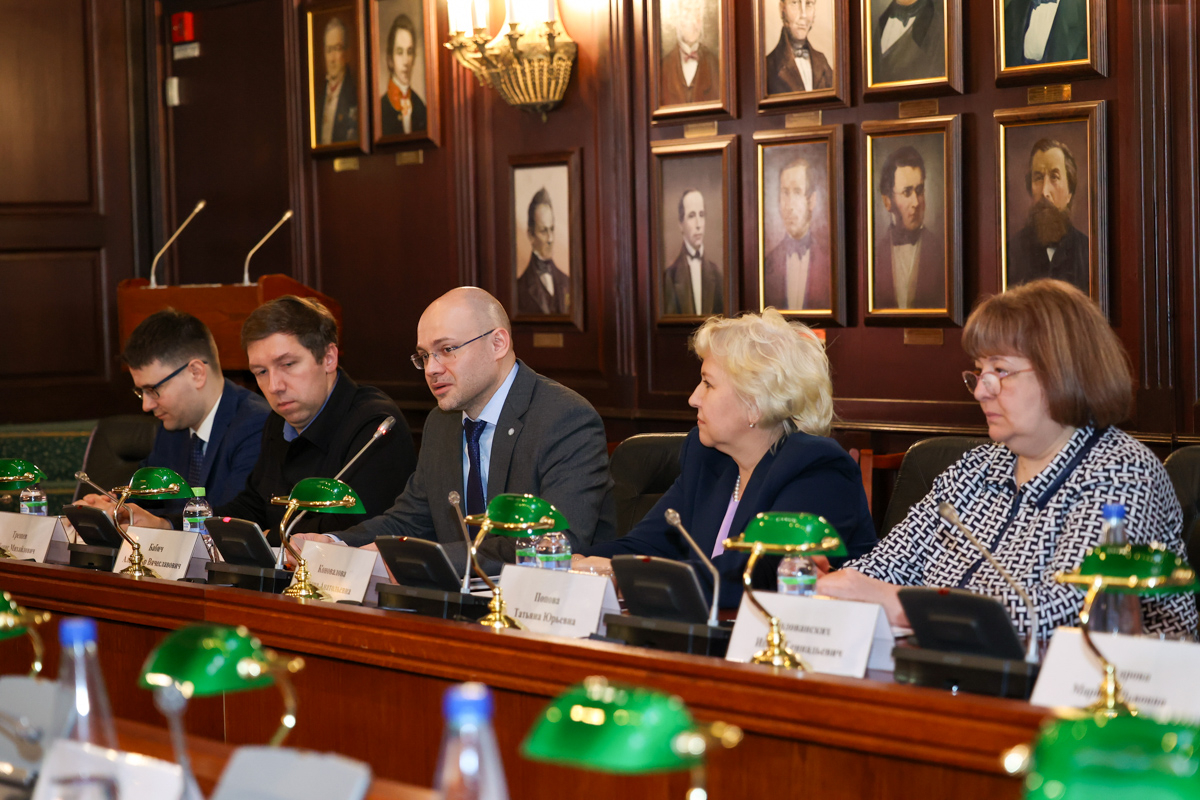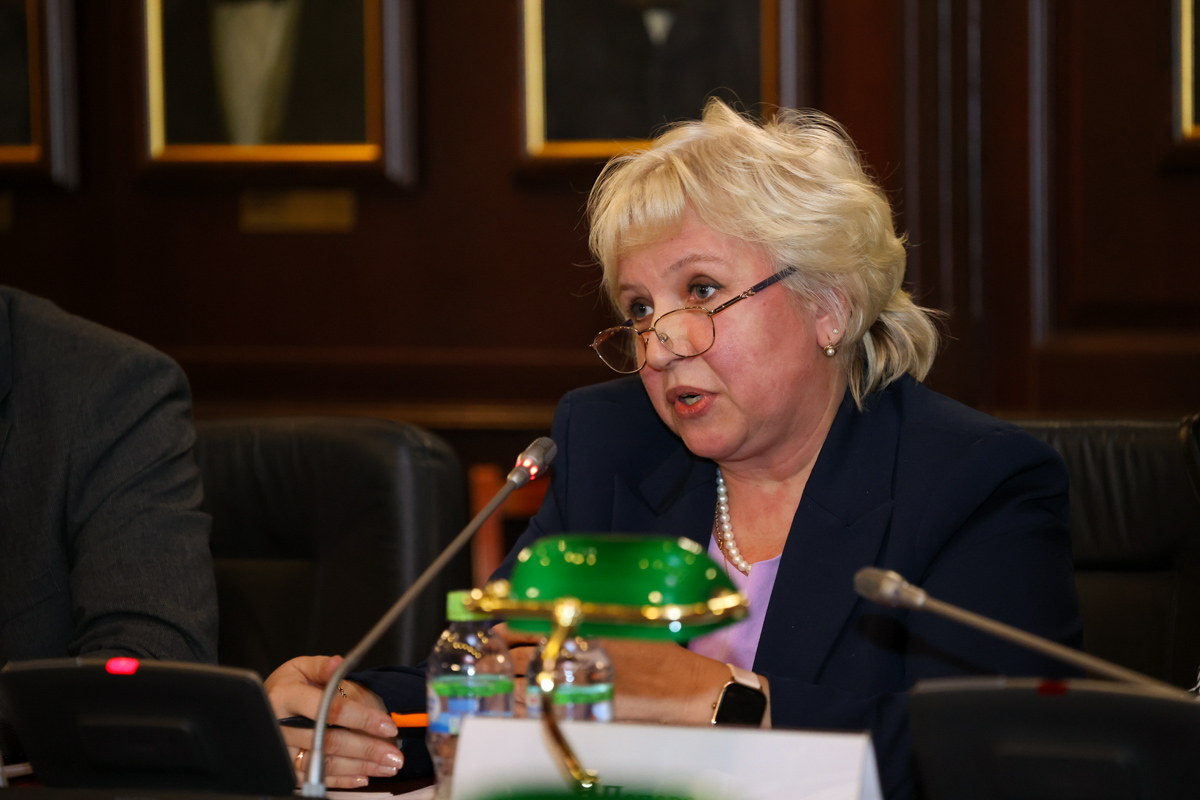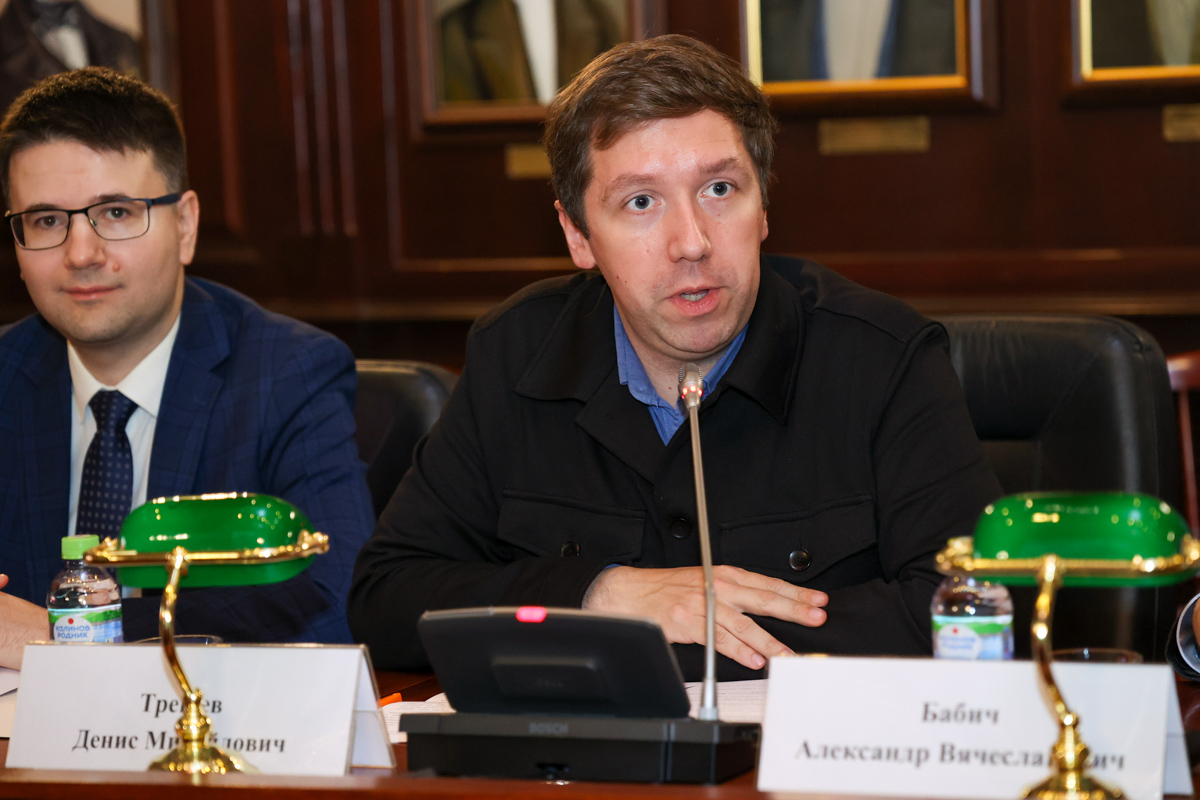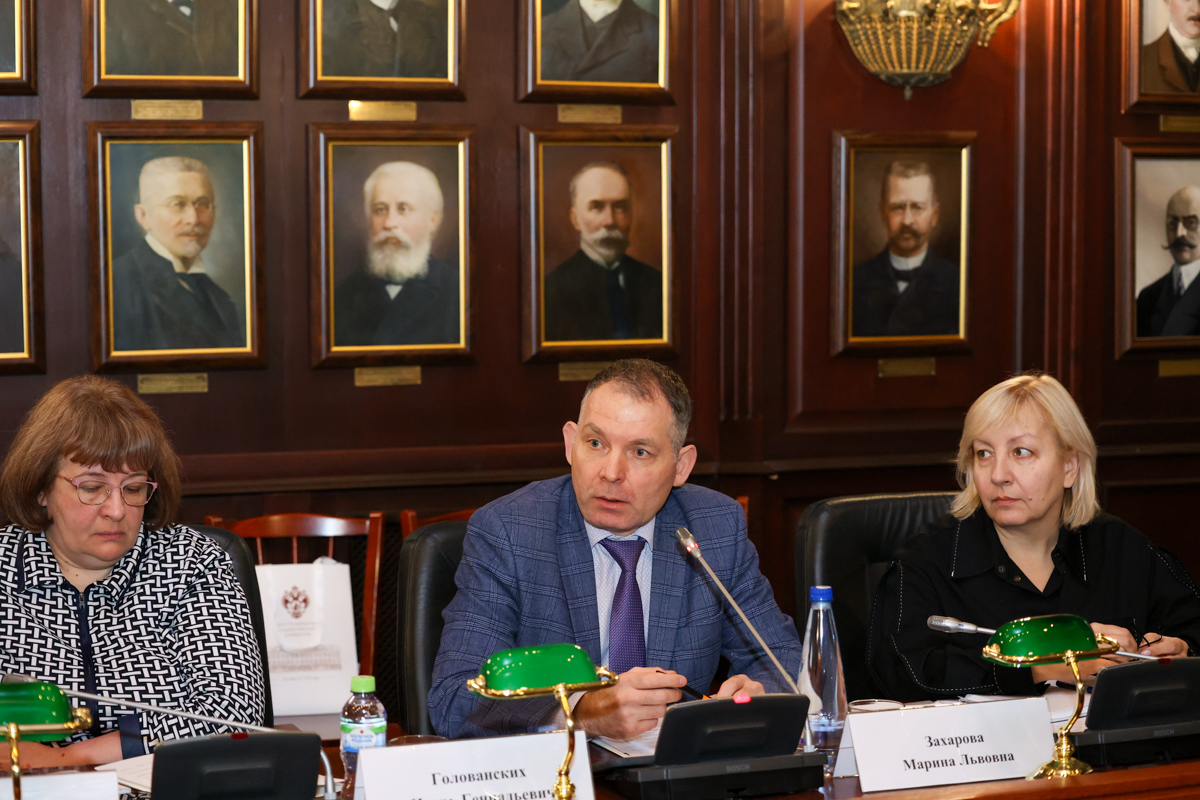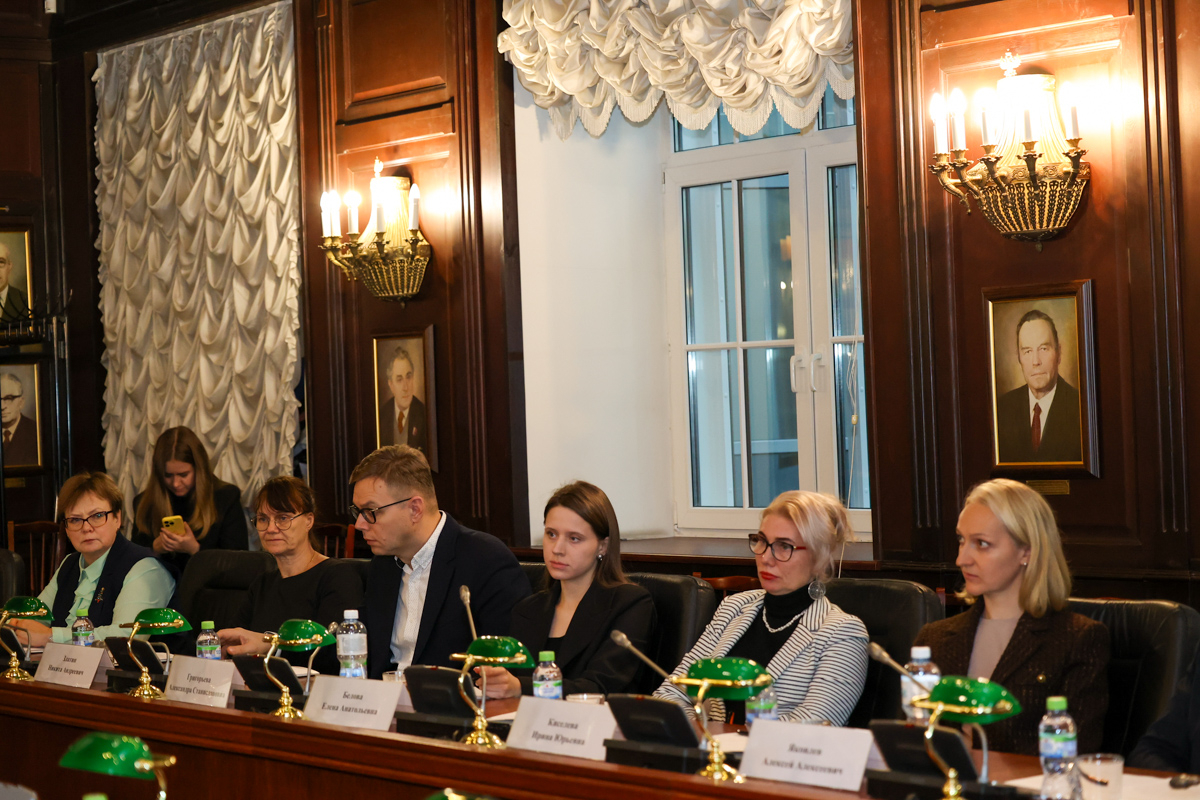St Petersburg University discusses the issues in employer-sponsored education of students
St Petersburg University, with the support of the St Petersburg Education Committee, has hosted a round table on "Employer-sponsored education as a tool to meet the personnel needs of the economy."
The event brought together representatives from organisations involved in employer-sponsored education and educational institutions, including the Federal Tax Service Directorate for St Petersburg; the Joint Stock Company North Western Regional Centre of Almaz Antey Concern — Obukhov State Plant; the Joint Stock Company Klimov; PJSC Sberbank of Russia; OJSC Power Machines; PJSC Severstal; the College of Automation of Production Processes and Applied Information Systems; and Lyceum No 226 in the Frunzensky District of St Petersburg.
Opening the discussion, Aleksandr Babich, Acting Senior Vice-Rector for Youth Policy and Admissions at St Petersburg University, highlighted the significance of collaboration between client organisations, employers, and educational institutions in training highly skilled personnel to meet the economic demands of the Russian Federation.
The results of employer-sponsored admissions to St Petersburg University in 2024 demonstrated a high level of knowledge among applicants enrolled within the special quota. For example, the average score of students admitted under the quota for employer-sponsored education for bachelor’s and specialist’s programmes was approximately 82 points.
Aleksandr Babich, Acting Senior Vice-Rector for Youth Policy and Admissions at St Petersburg University
Denis Treshchev, Head of the Vocational Education Department of the St Petersburg Education Committee, discussed the significance of introducing a new mechanism for admission to employer-sponsored education in 2024, following amendments to the Federal Law "On Education in the Russian Federation." This new system is open and transparent, allowing customers of employer-sponsored education to place proposals for signing agreements on sponsored education on the Unified digital platform in the field of employment and labour relations "Work in Russia." It also enables any applicant to apply for these proposals.
"For St Petersburg University, ensuring transparency in the selection process for employer-sponsored education contracts is crucial. Under the previous model, which was in effect in 2022 and 2023, St Petersburg University, in collaboration with the Government of the Republic of Karelia, organised competitions for all applicants seeking agreements on sponsored education with organisations and enterprises in the Republic of Karelia. The winners of these competitions were selected based on their maximum Unified State Examination scores and individual achievements. Now, according to the new version of the Law on Education, which St Petersburg University co-authored, the model of open admission to employer-sponsored education has been implemented at the federal level," Aleksandr Babich added.
Experts from St Petersburg University played an active role in the legislative process and advocated for transparent admission processes based on clear criteria. Notably, this idea was presented by Nikolay Kropachev, Rector of the University, during a meeting of the Presidium of the Council of Legislators of the Russian Federation at the Federal Assembly of the Russian Federation.
During the round table, the experts discussed existing practices for engaging talented students and their parents in developing motivation for employer-sponsored education.They highlighted the importance of early career guidance and the significant role of introducing schoolchildren to the production processes in real sector enterprises and the professional tasks of clients in the financial and economic sectors. This, they noted, contributes to developing students’ interest in employer-sponsored education aligned with the needs of relevant customers and enhances their prospects for future employment in the chosen field.
Summing up the results of the discussion, Aleksandr Khurshudian, Deputy Senior Vice-Rector for Youth Policy and Admissions, Executive Secretary of the Admissions Committee of St Petersburg University, emphasised the importance of collaborative career guidance work involving higher and secondary vocational education institutions, organisations — customers of employer-sponsored education — and general education institutions. This collaboration is crucial for increasing the demand for sponsored education as a pathway to higher education at leading universities in the Russian Federation. He highlighted that well-prepared applicants, even at the admission stage, can define their educational and professional paths, with guaranteed employment upon completing their studies, thus ensuring that state customers are provided with highly qualified personnel.


